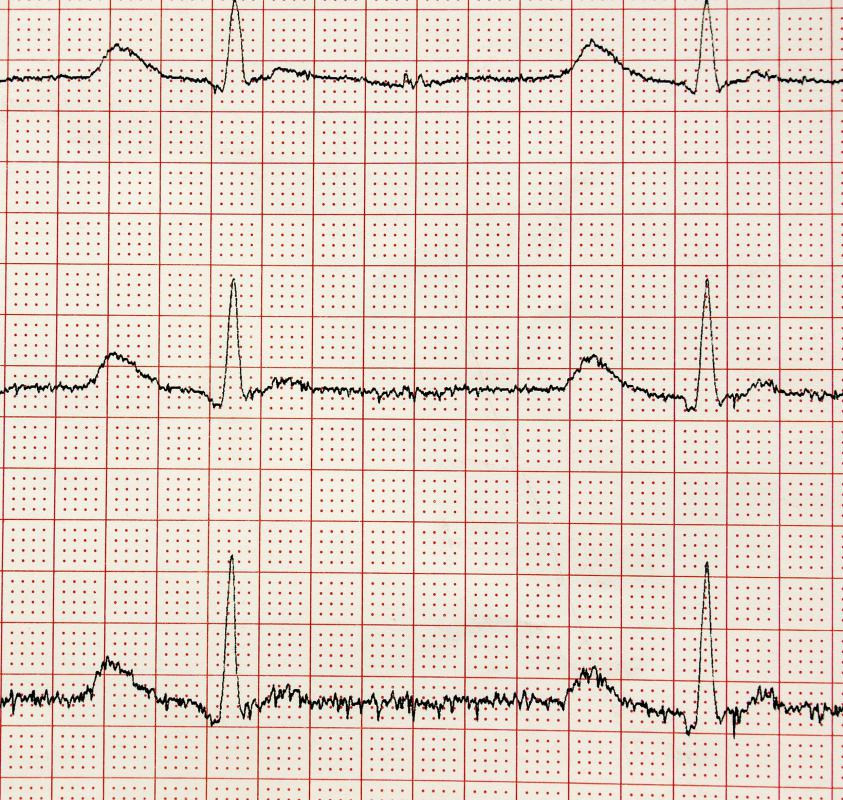At WiseGEEK, we're committed to delivering accurate, trustworthy information. Our expert-authored content is rigorously fact-checked and sourced from credible authorities. Discover how we uphold the highest standards in providing you with reliable knowledge.
What does a Electroneurodiagnostic Technologist do?
An electroneurodiagnostic technologist is a specially educated health care professional who conducts complex tests involving the monitoring, recording, analysis, and study of the nervous system. The field of study includes the brain, peripheral nervous system, and the spinal cord. Originally, those who were employed in the field were called electroencephalic technologists; however, the terminology changed when the field expanded beyond issues of the brain.
Using equipment such as an electroencephalograph (EEG) machine, an electroneurodiagnostic technologist can record electrical impulses that the nervous system and the brain transmit. They can also aid medical doctors in the diagnosis of brain tumors, epilepsy, strokes, and various sleep disorders. Measuring the effects that certain infectious diseases have on the brain and analyzing whether a patient has a medical condition, like Alzheimer’s disease, are among the duties of an electroneurodiagnostic technologist, as well. In addition, cerebral death or the lack of activity in the brain can also be assessed to determine the likelihood of recovery from a brain injury or a coma.

An electroneurodiagnostic technologist may be solely responsible for recording a patient’s EEG activity. First, she may brief the patient and take his medical history. Then, she will apply electrodes connected to the electroencephalograph to the scalp of the patient. She is required to understand how the equipment works and how the results should read for each particular patient based on his condition. She must also know how to report the results to the patient’s medical doctor.

Performing other tests are also important duties for an electroneurodiagnostic technologist. For example, she may be required to monitor and analyze visual, auditory, and somatosensory pathways in the body. In addition, it would not be unusual for her to perform nerve conduction studies, stimulating the peripheral nerves to record how they respond. Polysomnography is a common test that monitors a patient’s sleep patterns and records any changes in body or brain function that may arise. An electroneurodiagnostic technologist may also conduct intraoperative neurophysiologic monitoring where a patient’s brain and nerve activity are watched during surgery.

Sometimes an electroneurodiagnostic technologist may need to respond during a testing session, specifically if a medical emergency occurs. She must act quickly and effectively at such times. Regardless of whether there is an emergency situation, she will also debrief the patient after the testing and write a report for the patient’s medical doctor and the patient’s file. It is a rewarding job for those who are interested in the workings of the brain, spine and nervous system.
AS FEATURED ON:
AS FEATURED ON:















Discuss this Article
Post your comments